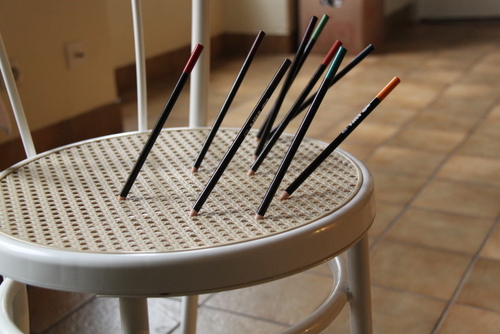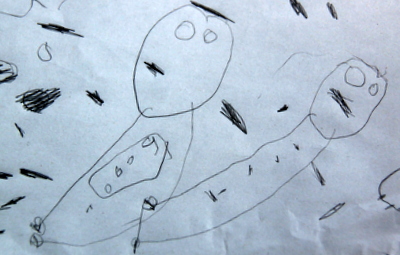It has finally happened. I’m finally seeing the effect of living in France on my Beirut baby’s language skills. Though she consistently speaks French to her dad, English used to be her default language for singing to herself or talking to herself while playing. Now not only is she starting to speak and sing to herself in French more, her sentences are getting longer and clearer.
Last week she managed to break the lightbulb in the lamp in her room which she loves to turn on and off. Annoyed at not having a functioning lamp, she decided that the best course of action was to exchange it for the one in our room. After all, it looks the same and – as yet – still works. “S’il te plaît avoir celui dans la chambre de mummy et daddy et allumer?” she asked. (Please have the one in mummy and daddy’s bedroom and turn on?)
Suddenly her French has drawn almost level with her English. I say almost, because I’ve not heard her use any kind of “when” or “if” construction as she does in English: “Can I have a yoghurt when I finished the lasagne?” Or temporal references such as: “Last time we play with the game with the girls and it’s broken.” Though she can string a sequence of actions together in French using après: “Toi tu fais celui-ci et après moi fais l’autre.”
It took nearly four months in France to make an audible difference to her French skills. Granted, they were busy months, finding a flat and having a baby, all the while planning our next move. We haven’t had a lot of time for French play dates. It was easier to just hang out with her cousins who speak mostly English at home. She is always out and about with me in town and with our adult French friends. But she hasn’t been to any school or childcare that would have brought her into daily contact with children who speak only French. Had I put her in playschool it would really have been an immersion. But language doesn’t dictate all our life choices.
It goes to show that while children learn languages with amazing ease, they will only do so in the right circumstances, that is, if they have a decent level of exposure and see them as living languages. After all, they can entirely unlearn a language they once spoke if they stop hearing it altogether at a young age. It becomes a dead language, inaccessible, locked away at the back of the mind.
French should never be that way for my daughter, but I don’t want it to be only a passive skill either, where she understands but struggles to express herself. So I’m delighted to see her making progress in French, the way she knows her little stories off by heart and loves to be quizzed on them and how after the last page is read and the book closed she reopens it with a hopeful “On recommence?”



